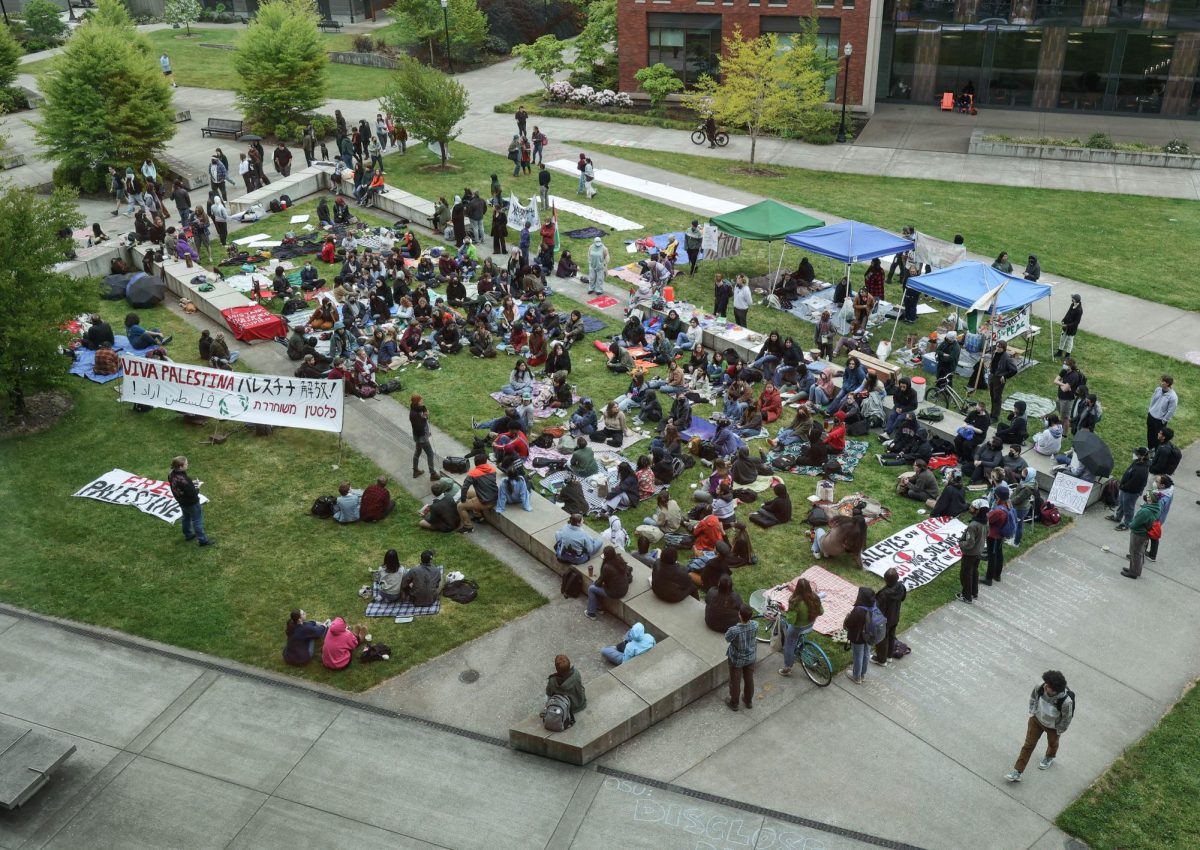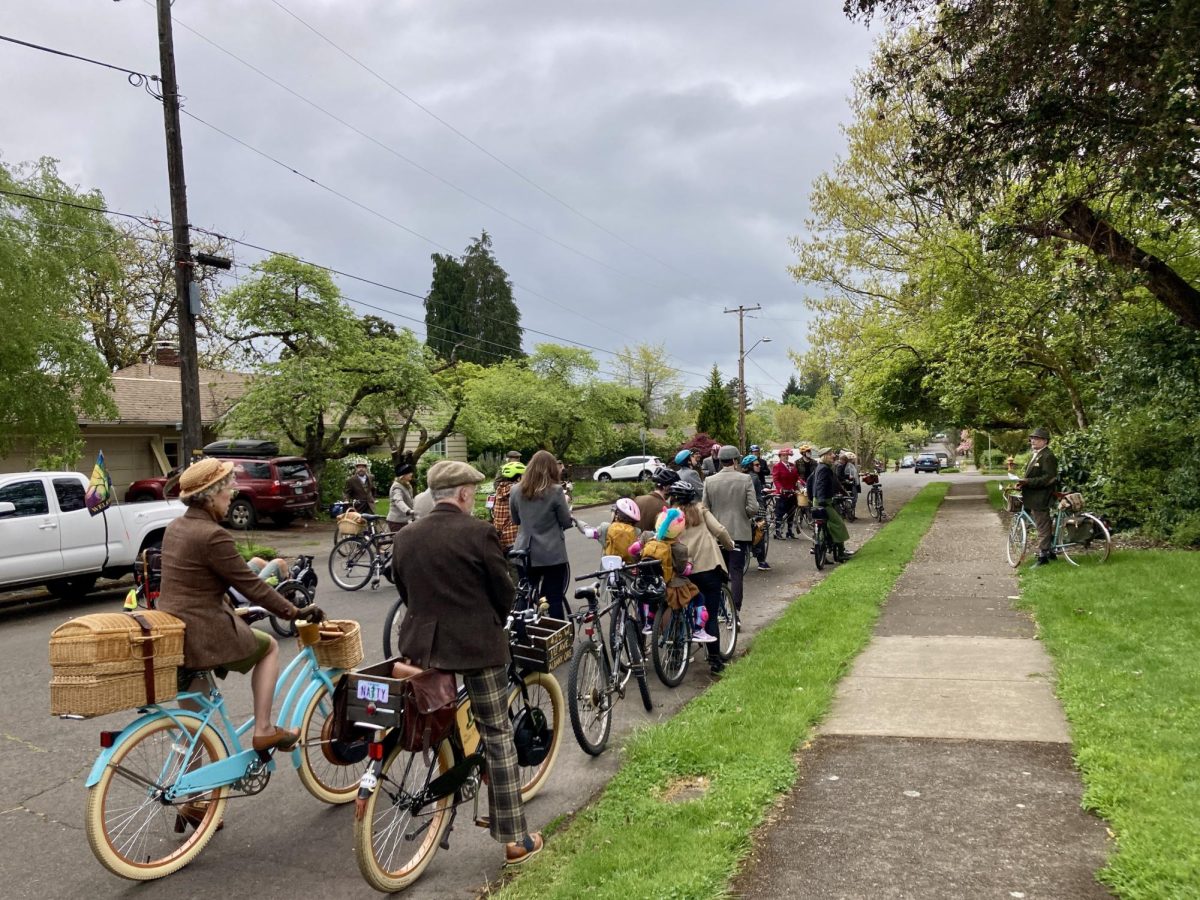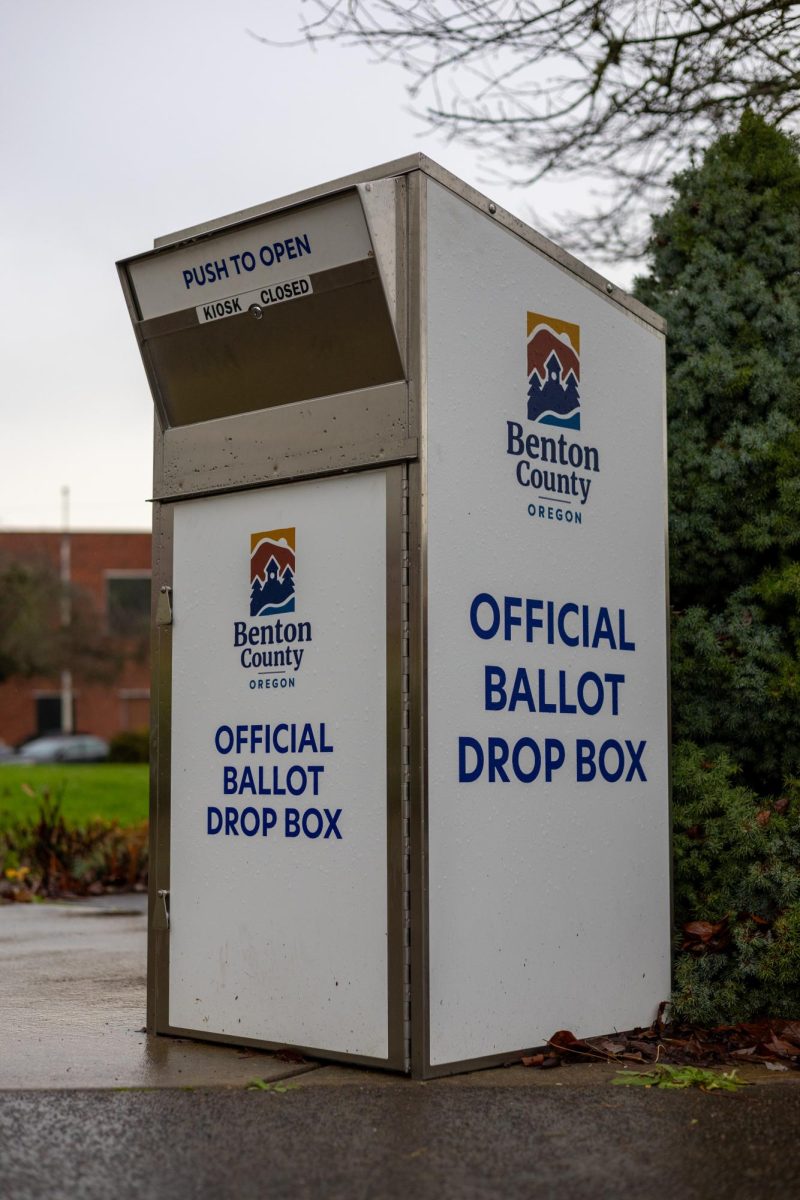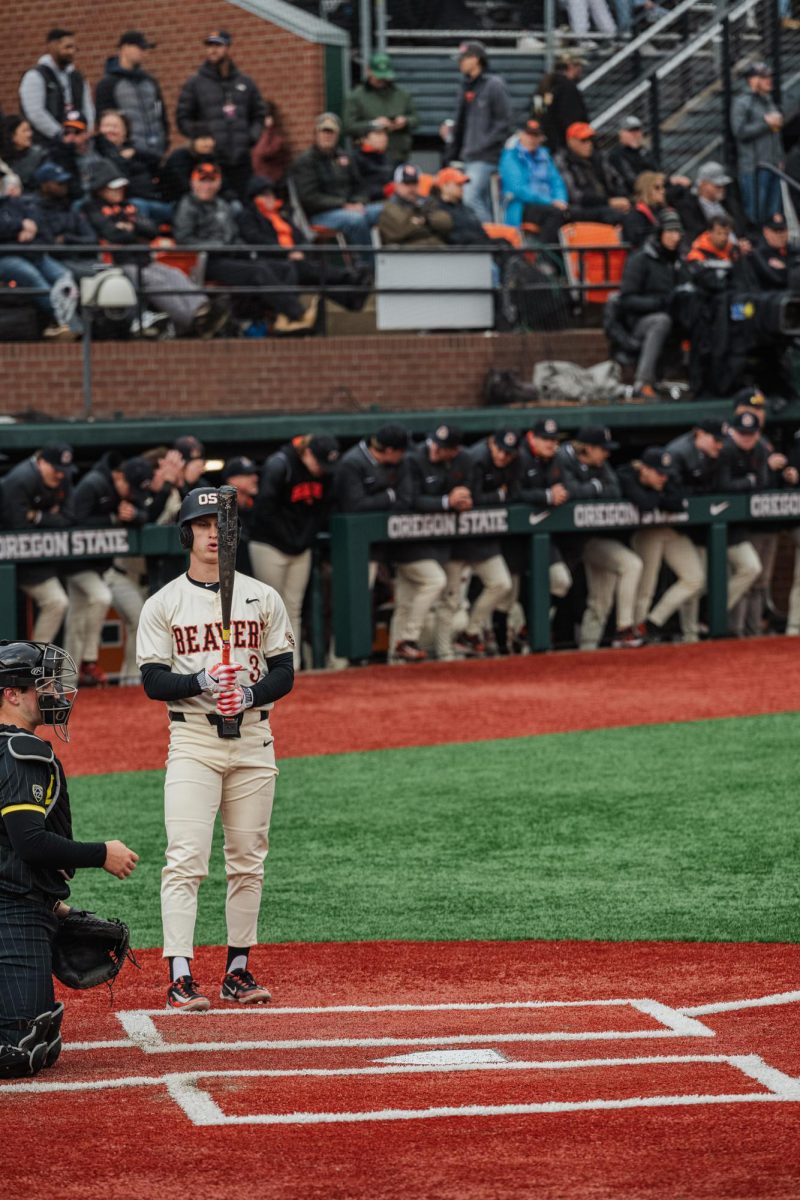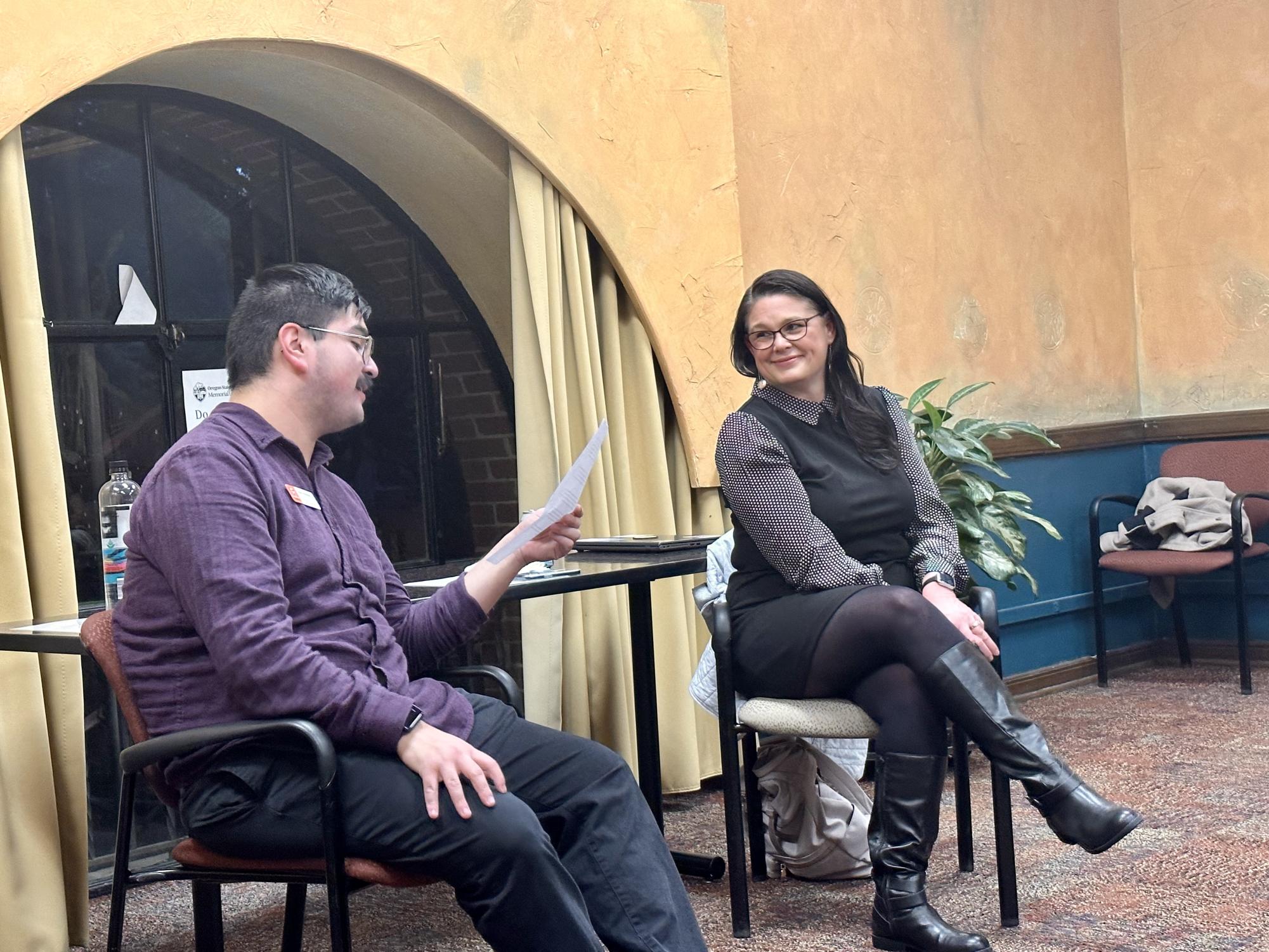Editor’s note: An earlier publishing of this article misspelled Sen. Sara Gelser Blouin’s name. The spelling has since been fixed. The Barometer apologizes and regrets this error.
A town hall orchestrated by the Associated Students of Oregon State University brought State Sen. Sara Gelser Blouin to OSU’s campus on Nov. 2 to speak on the topics of higher education costs, housing, the PAC-12 and transportation.
Gelser Blouin has served in the state senate since 2014 and sat on a range of committees, a number of them being education and human service related.
“No matter how well intentioned we are as legislators, we can’t do it right unless we’re talking to the folks that it impacts,” Gelser Blouin said.
Angelo Arredondo, ASOSU policy director facilitated the discussion, asking pre-planned discussions followed by questions from the roughly 20 students in attendance.
Here is what Gelser Blouin had to say on these topics.
Housing
According to Gelser Blouin, Oregon Governor Tina Kotek has made housing one of her highest priorities, but the situation in Corvallis is somewhat unique, seeing as it is a small town with a growing and dominant student population.
The senator said that when considering housing and housing affordability, she and the governor account for how to control rising rents, building requirements and affordable housing opportunities.
“So we’re looking at issues like, how do we help people build capital,” Gelser Blouin said.
Some of the action Gelser Blouin listed for this area is making college more flexible by helping students earn credits before college to “build capital,” as well as by reducing the fees of applying for housing through regulation, which limits how many times each year future renters have to pay to apply (a piece of legislation that the senator hopes to see expanded in the coming sessions).
Higher Education funding
Arredondo shared that the state of Oregon ranks around No. 45 in the nation for public university funding and asked what Oregon administrator’s plans are to climb the ranks.
Gelser Blouin responded by saying that the challenges of accessing more funding come down to Oregon’s revenue system and getting enough people in the legislature to hold a session and vote.
“We have had significant revenue increases – not significant in terms of the number – but, significant policies to raise revenue about three times since I’ve been in the legislature, and all of those have been related to education,” Gelser Blouin said.
Gelser Blouin talked about where she saw priorities in funding higher education as investing in the “core” of the institutions as well as finding ways – which were not identified – to improve the affordability of tuition.
“We can lower tuition, but if you can’t get into the classes that you need and it takes you six years to graduate, it doesn’t really matter that we’ve reduced the tuition to get there,” Gelser Blouin said.
Food insecurity among students
Arredondo asked the question about what the legislature is doing to reduce food insecurity, substantiating his question by reporting that over a quarter of OSU students identified as food insecure in a 2022 survey run by student affairs.
According to Gelser Blouin the legislature created “benefit navigator” positions as a response to food insecurity, to connect people facing these issues to resources on campus.
“We passed the benefits navigator for university campuses a couple of years ago and now that almost all of those positions are filled, we’re looking at additional legislation of changing the name, instead of benefits navigator, (to) ‘emergency needs’ because it will give us the opportunity to better talk about that for students,” Gelser Blouin said.
Gelser Blouin also expressed her admiration for the Basic Needs Center at OSU and the work they have done.
“I would like to see that expand as we move forward,” Gelser Blouin said.
Transportation
Arredondo asked if the issue of student commuting and transportation at OSU was on the legislature’s radar.
According to Arredondo, around 30% of OSU students commute to campus from other cities in Oregon, however Corvallis does not have an Amtrak station, making transportation difficult for students not living directly in the Corvallis area.
Gelser Blouin said that while bringing passenger trains to Corvallis is supported by the legislature (including the “choo-choo caucus” which is dedicated to issues about trains), the reality of bridging rail to Corvallis is just not possible.
“The challenge that we ran into is that as Oregon was built, it wasn’t really baked into the way that we developed our land,” Gelser Blouin said. “The only way you got rail closer to Corvallis was to eliminate the rail station in Albany, which doesn’t make a lot of sense either because they just invested a lot of money in upgrading that.”
The senator did mention that cheaper and more frequent shuttles are on the legislature’s list of options to expand transportation options between Corvallis and Eugene.
PAC-12 realignment consequences and OSU
When asked what role the legislature should and will play in the situation of the PAC-12 and OSU’s future, Gelser Blouin responded by saying that there is little the legislature can do.
According to Gelser Blouin, independent governing boards have handed over the governance of universities to those boards rather than the state.
“We allocate funds, we can create modest mandates, but we cannot tell an organization that they can’t enter into a contract or that they can’t make a change like the University of Oregon did,” Gelser Blouin said.
She also said that neither the legislature nor the governor has the ability to change these boards, even with cause.
“I think, (there is an) important question for the legislature to look at in terms of how we are governing those institutions,” Gelser Blouin said, and added thoughts that some institutions – not OSU– enjoy reaping the benefits of being a public state institution without necessarily making Oregon students and Oregonians the center of their decisions.
Gelser Blouin also expressed disappointment for what appeared to be a lack of respect from the University of Oregon in the house higher education committee hearing in late September.
When asked about helping to fill the gap left by OSU’s loss of revenue, Gelser Blouin said, “If we do not do that, I am committed as a legislator to advocate for the legislature to fill that role. I feel like a promise has been made to these students, and that promise needs to be kept.”
Gelser Blouin ended on a note about student voice in politics and activism.
“It is the role and the job of young people; students who are studying, students who are engaged in work for the first time, to be the voice of conscience, or the voice of opposition, the voice of question in societies, and that can be really hard,” Gelser Blouin said.
ASOSU President Carissa O’Donnell was among the students in attendance to hear Gelser Blouin address these student facing issues.
O’Donnell says that she and all of ASOSU sees great value in giving students an outlet to get involved in legislative processes through efforts such as these town halls.
“By bringing legislators to campus so that students can interact and hear directly about issues and policy unfolding, we open up communication pathways and establish added accessibility and feasibility for student involvement in governance,” O’Donnell said.



